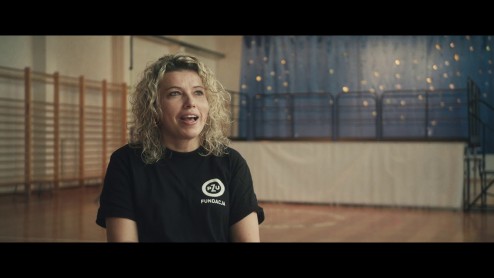
How Femtech is Capitalizing on Women17.05.2019
The relationship between womens' bodies and health tech gets closer every day. As we continually digitize every piece of data about ourselves, women’s health data has become a boon for big business.
I just quickly went through my phone and counted the number of apps I use to track certain aspects of my life: Apple Health for my steps, Apple Bedtime for my sleep, Care/of for vitamins, Lifesum for counting my macros and water intake, Nike Run Club for my workouts, Google Sheets for my training, Happy Scale for my weight, Co—Star for my horoscope (subjective, but for the sake of monitoring my “mood”), and Clue for my period. Nine apps I use to express my life mathematically in data and algorithms.
Women are a prime audience for this new class of digital health solutions—dubbed femtech—being 75% more likely to use digital tools for healthcare than men.
There are over 250,000 health and wellness apps in app stores, and the fundamental component for all of them is tracking behaviors, encouraging the self-monitoring of mind and bodily processes. Gathering data puts the power of a curated life in the hands of people in a way never before possible.
And women are a prime audience for this new class of digital health solutions—dubbed femtech—being 75% more likely to use digital tools for healthcare than men. As women become more empowered and have agency over their own wellbeing, there’s a huge interest in using tech to demystify our own bodies and minds.
More than 100 million women monitor their cycles on their phones, and as a result, are creating huge new data sets that can be researched and analyzed. I use Clue, which along with Flo, are the most popular choices. Users can track all sorts of different things: cravings, digestion, hair, skin, emotions, motivation, and sex. With the help of AI, personalized and tailored content is served up about your cycle. Clue in particular has amassed the largest data set about menstruation ever, and has been sharing their data with academic institutions like Columbia, Oxford, and the Kinsey Institute for studies such as menstrual cycles predicting disease and a better understanding PMS.
With the confluence of femtech and digital health innovation, new solutions women hadn’t dared to dream of are beginning to feel accessible, affordable and within reach.
But period-tracking is just the tip of the iceberg. Femtech has seen a wave of innovative and disruptive technologies which will revolutionize the way women are able to live their day-to-day lives. New product offerings have expanded: from fertility testing, pregnancy planning, connected breast pumps, contraceptive apps, to sexual wellness. With the confluence of femtech and digital health innovation, new solutions women hadn’t dared to dream of are beginning to feel accessible, affordable and within reach. What if there a microchip implant that could monitor a woman’s body instead of manually logging?
Dreaming of a possible future of more empowered, unburdened women is a fun and optimistic exercise, and a preferable future I’d personally love to live in. But unfortunately we’re not quite there yet.
The elephant in the room is that femtech is inherently intertwined with with society and politics. To start, the majority of femtech companies and startups are still a boys club. In tech, women are severely underrepresented, so almost all of the period-tracker apps have been created by men. Like Glow, founded by PayPal’s Max Levchin and four other men, or Flo, created by brothers from Belarus – Dmitry and Yuri Gurski.
Investors see it as a big boon to business. In the past three years, an estimated $1 billion of investment has been poured into femtech.
When women don’t have a seat at the table, it has a trickle down effect. “The design of these tools often doesn’t acknowledge the full range of women’s needs. There are strong assumptions built into their design that can marginalize a lot of women’s sexual health experiences,” says Karen Levy, an assistant professor of information science at Cornell University. Currently Clue, founded by Ida Tin, is the only app created by a woman, for women.
When Tin first began developing her app, nobody took her seriously, saying it’s a “female product, a niche thing.” Now investors see it as a big boon to business. In the past three years, an estimated $1 billion of investment has been poured into femtech. This has nothing to do with the tech industry becoming pro-woman, but instead another way to capitalize on women.
Because it wouldn’t be 2019 without another privacy scandal, new reports have been coming out exposing privacy breaches and how these apps have been exploiting women’s data to be able to build business and ad models off this extremely sensitive data. It was reported by The Wall Street Journal earlier this year that Flo turned out to be sharing users’ personal health information with Facebook in order to create targeted ads. A Flo-using teenager might get ads on tampon use, while a 30-year-old might be pitched ovulation tests.
The femtech market is likely to keep sliding toward ever-more-intensive data mining, and the tracking and commercialization of virtually every aspect of our lives is here to stay.
In contrast, Tin strongly opposes selling or running targeted ads, which she deems invasive. The business model for many health trackers is “all about selling the data in ways that the user doesn’t know about. We’ve seen so many examples where we learn we cannot trust companies.”
Another health-monitoring app, Ovia is transparent with how they’re capitalizing on pregnancy data. The Washington Post reports says companies can purchase a “de-identified” version to include in employee benefits packages. In return, they—and the insurance company—receive anonymous user data.
A huge concern health and privacy experts have raised is that it could result in companies scaling back benefits based on projected costs, or discriminate against women even considering pregnancy.
The femtech market is likely to keep sliding toward ever-more-intensive data mining, and the tracking and commercialization of virtually every aspect of our lives is here to stay. As Tin said, “People share data about the most intimate parts of their lives. They talk about their mood, they talk about their pain, they talk about their sex lives. If you ask people to share this data, you’ve got to have ethical conversations about what you’re going to do with that data.”
see also
- Mick Champayne | Life After Privacy

Trends
Mick Champayne | Life After Privacy
- Kieran Stringfellow, the director of “Bulldog”: Filmmaking is one of the hardest forms of creativity
 Papaya Rocks Film Festival
Papaya Rocks Film FestivalPeople
Kieran Stringfellow, the director of “Bulldog”: Filmmaking is one of the hardest forms of creativity
- The First Heart 3D-Printed Using Human Stem Cells Promises a Breakthrough in Transplant Science

News
The First Heart 3D-Printed Using Human Stem Cells Promises a Breakthrough in Transplant Science
- The World’s Most Environmentally Friendly Hotel to Open Near North Pole

News
The World’s Most Environmentally Friendly Hotel to Open Near North Pole
discover playlists
-
John Peel Sessions
 17
17John Peel Sessions
-
Muzeum Van Gogha w 4K
 06
06Muzeum Van Gogha w 4K
-
PZU
 04
04PZU
-
Original Series Season 1
 03
03Original Series Season 1
